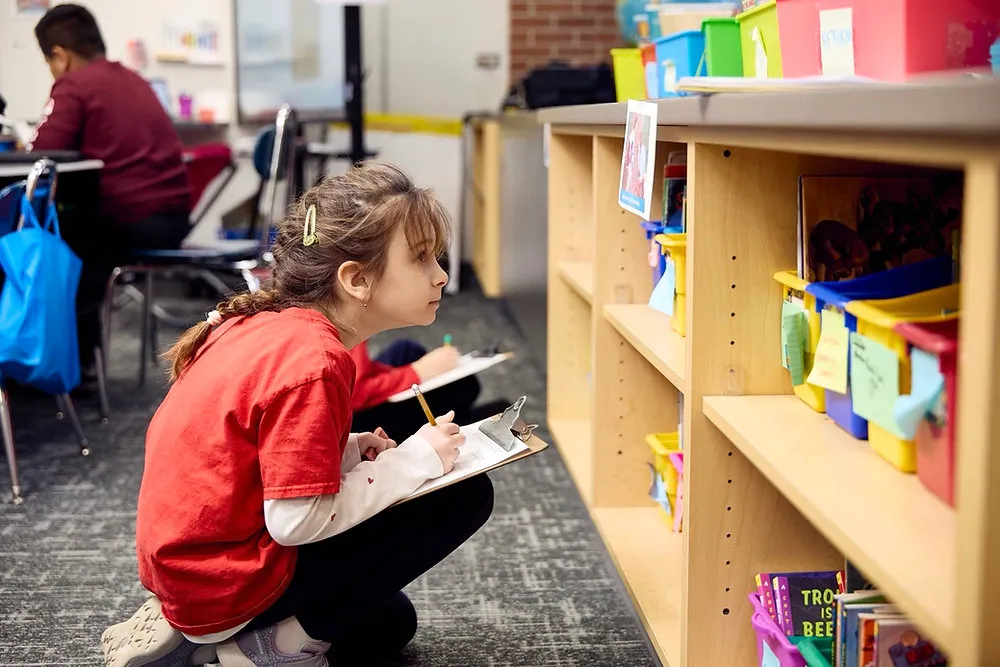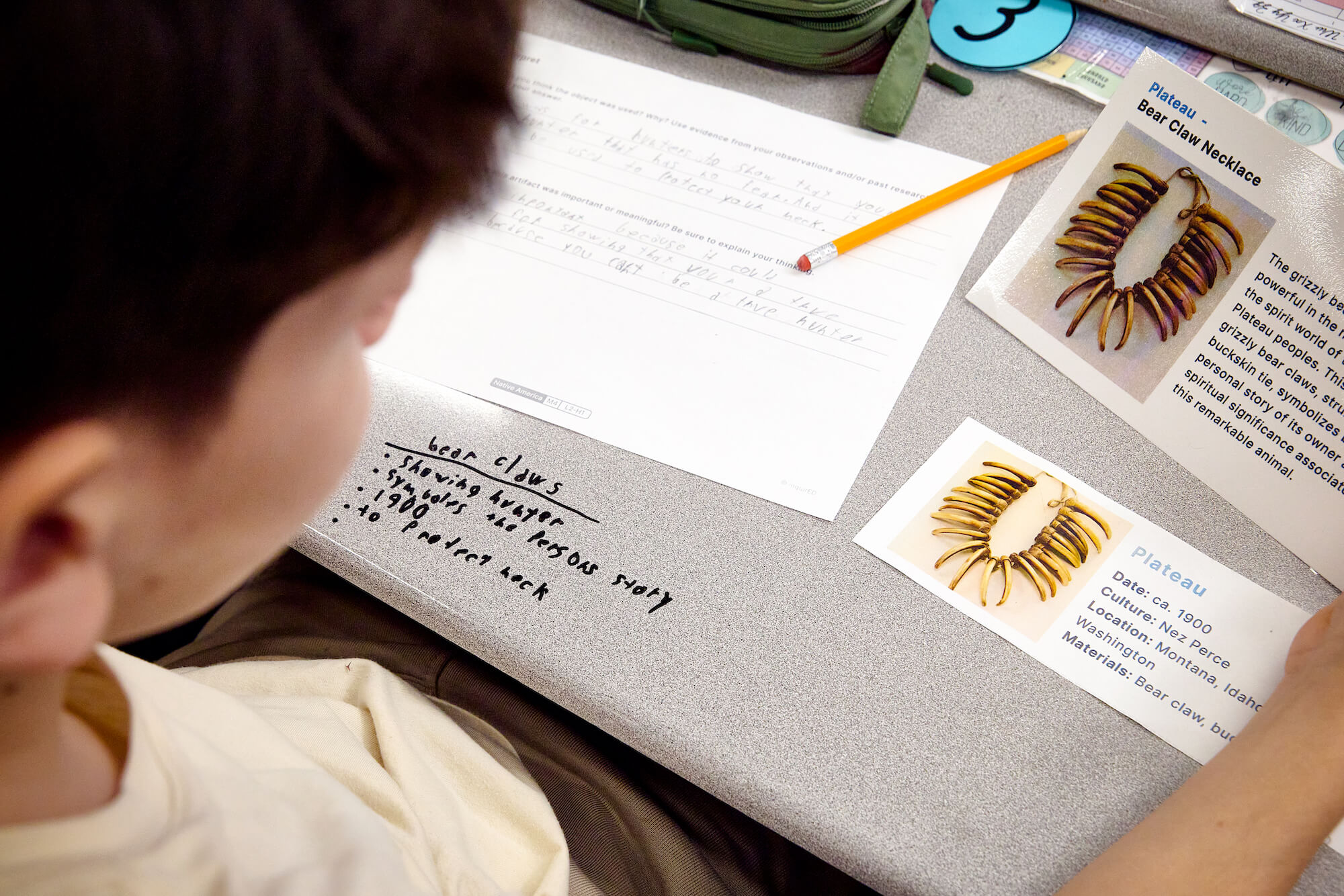Why Inquiry-Based Social Studies Matters in K–5 Classrooms

NOTE: There is no recording for this webinar.
Why Inquiry-Based Social Studies Matters in K–5 Classrooms

Elementary students are full of curiosity, constantly asking why, how, and what if. But in social studies, that spark often gets buried under worksheets and memorization. It doesn’t have to be this way. Inquiry-based social studies taps into students’ natural wonder to build understanding, encourage critical thinking, and connect learning to real-world issues. In this post, we’ll show how inquiry can transform K–5 social studies and why it makes such a difference.
Key Takeaways
What Is Inquiry-Based Learning in Social Studies?
In inquiry-based social studies, students learn about social studies topics through investigation. The investigation starts with a big, compelling Inquiry Question that students explore as they learn. Then, they gather evidence from primary and secondary sources (books, articles, maps, videos, etc.) to help them answer the question. Finally, they come to their own conclusions, create projects, and share their findings with others. In an inquiry-based classroom, students could come to different conclusions based on the evidence!
For a full breakdown of the instructional shifts involved, check out our guide to inquiry-based social studies.
Why Move Away from Traditional Social Studies Instruction?
Traditional social studies instruction often centers on memorizing dates and facts. While that approach may check a box, it doesn’t spark curiosity or build the deep understanding students need to understand a complex, changing world.
Inquiry-based social studies is different. It starts with big questions and real-world connections. It invites students to explore, investigate, and collaborate as they make sense of the past and present. Along the way, they build essential literacy and thinking skills — and see themselves as active participants in their communities and the world.
Learning becomes meaningful, memorable, and transferable when social studies is taught through inquiry – and that’s a shift worth making.
Want to see how this compares in action? Read our take on inquiry-based learning vs. traditional social studies teaching.
Benefits of an Inquiry-Based Social Studies Curriculum
- Boosts student engagement: Inquiry taps into students’ natural curiosity. Big questions, authentic problems, and hands-on investigations keep learners motivated and excited to explore.
- Builds disciplinary literacy: Students read, write, and think like historians, geographers, economists, and civic participants. They analyze sources, build arguments, and communicate their ideas with evidence.
- Fosters civic readiness: Inquiry prepares students to participate in a democratic society. They learn to ask critical questions, consider multiple perspectives, and take informed action in their communities.
- Promotes student ownership and independence: Students take the lead in their learning, posing questions, making choices, and sharing their voices. That independence helps them build confidence and see their role in shaping the world.
Educators using inquiry-based strategies report not only higher engagement but also deeper understanding and stronger classroom discussions.
Examples of Inquiry-Based Learning in K–5 Social Studies
- In Grade 1, students explore the question “How can we help others appreciate our special location?” They build maps of their school and community, study local landforms and climate, and create postcards that showcase what makes their hometown unique, learning how geography shapes daily life.
- In Grade 3, students investigate “How can we make economic choices that positively impact our lives and communities?” Through activities like creating vision boards, running a classroom marketplace, and building models of businesses that meet local needs, they learn about producers, consumers, and financial decision-making.
- In Grade 5, students explore “How can we promote life, liberty, and the pursuit of happiness for all?” They analyze events and perspectives from the American Revolution, participate in debates, and create newspaper articles to connect historical ideals with modern-day civic values and responsibilities.
These are just a few examples of inquiry-based learning from inquirED’s K–5 social studies curriculum, Inquiry Journeys. The goal is always the same: spark curiosity, deepen thinking, and make learning meaningful.
Student-Centered Social Studies: It’s Possible, and Practical
Some worry that inquiry is too open-ended or too complex for younger learners. But with the right support, students can take ownership of their learning in powerful ways.
The Inquiry in Social Studies Guide outlines simple ways to scaffold inquiry:
- Start with compelling, age-appropriate questions
- Use multimodal sources to support diverse learners
- Guide students through investigations with structured routines
{{download}}
How to Get Started with Inquiry-Based Learning in Social Studies
If you're just beginning this journey, start small. Choose one unit or one lesson to teach through an inquiry lens. Focus on a powerful question. Gather sources that invite exploration. And give students space to wonder, reflect, and engage.
And remember, you're not alone. At inquirED, we've worked alongside educators across the country to bring inquiry to life in social studies classrooms. We believe in the power of inquiry, and we’ve seen its impact firsthand.
Inquiry-based learning in social studies isn’t just another instructional strategy. It’s a way to honor student curiosity, deepen learning, and prepare students for the world beyond the classroom.
If you’re ready to reimagine what social studies can look like, start with our Inquiry in Social Studies Guide. It’s packed with examples, strategies, and supports to bring inquiry into your classroom or district.
Resources
Keep reading
See more of this series
.webp)
Download the Inquiry in SS Guide
Looking for more student-centered social studies instruction ideas? Download the Inquiry in Social Studies Guide for strategies you can use right away.
Start your journey
Inquiry Journeys, inquirED's K-5 social studies curriculum, engages students in inquiry-based learning, strengthens literacy skills, and supports teachers every step of the way.
inquirED supports teachers with high-quality instructional materials that make joyful, rigorous, and transferable learning possible for every student. Inkwell, our integrated core ELA and social studies elementary curriculum, brings ELA and social studies together into one coherent instructional block that builds deeper knowledge, comprehension, and literacy skills. Inquiry Journeys, our K–5 social studies curriculum, is used across the country to help students develop the deep content knowledge and inquiry skills essential for a thriving democracy,









